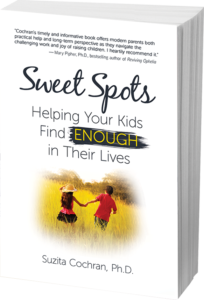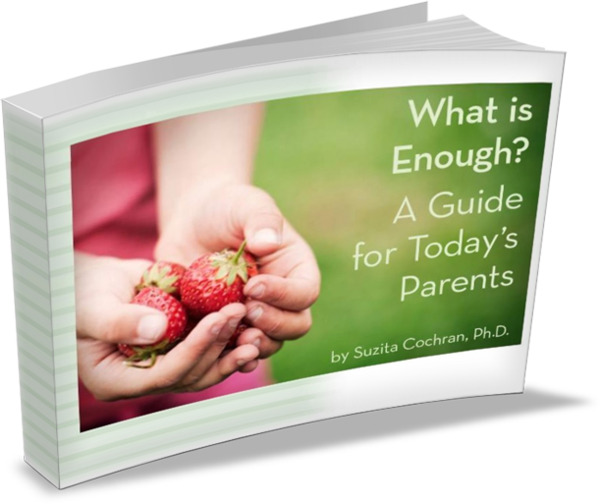What if you could make a New Year’s resolution this year that was equivalent to the happiness bump you’d get from a $2,200 raise—without changing any behaviors at all? Read on, my friend.
One opportunity the coronavirus pandemic has offered is a new lens through which to view our lives. Living through periods of lockdown has stripped away the majority of our activities, offering a unique chance to notice which ones we truly miss and which we can live without.
The pandemic has removed many of our noisy daily distractions and deposited us in a less-rushed space where we can’t help but look inward. Being surrounded by sickness and death—or experiencing the virus ourselves as our whole family did—forces us to consider our life priorities. What if the virus takes me or a relative? Is there anything I need to do with or say to a loved-one now rather than later?
The reminders of our mortality can also shine a light on how we choose to live our daily lives—leading many of us to switch our mindsets from the money we make to the time we have.
Time Poverty
In Time Smart: How to Reclaim Your Time and Live a Happier Life, Ashley Whillans defines the term “time poverty” as the feeling of having too many things to do and not enough time in the day to do them. Eighty percent of working Americans report feeling time-poor. A large portion of children and teens do as well—kids who are so busy with structured activities that they have no downtime to simply daydream, or fiddle with a guitar or legos.
Whillans’ research suggests that the emotional impact of being time-poor can be greater than the emotional impact of being unemployed.
Focus on Time Over Money
Years ago I came across the term “time wealth” in Plenitude by Juliet Schor and latched strongly on to this concept. To achieve time wealth, we must notice the ways we experience our choices.
We must ask ourselves such questions as:
- When I began my job I didn’t mind the commute, but this past year I notice it’s really drained me. Now that I work from home, I’m not sure I can go back to it. What are my options?
- I love that my daughter is so involved in music. But now she is asking to play a new instrument after already playing one, as well as taking voice lessons. Is this too much for her? For me?
- I notice I’ve gotten closer to my young kids during the pandemic. I feel like I know them better than I did—even though being trapped at home with them isn’t always fun. How can I retain the positive aspects of our “pandemic lifestyle” after things return to normal?
Memory Dividends
Bill Perkins describes another aspect of time wealth in Die with Zero. In general, the book helps people become more deliberate in their financial choices over their lifetimes. But one premise of Die with Zero is the importance of the memories we create during our lives. Perkins’ view is that in later years we “retire on our memories.” When it becomes harder for us to be active and create new memories, we “look back on the memories we have with pride, joy, and the bittersweet feeling of nostalgia.” Since Perkins writes with a financial focus, he calls this the “memory dividend” highlighting the fact that our memories give something back each time we revisit them.
This memory dividend isn’t merely generated from great vacations or athletic feats; it’s also built on time with one’s children or older parents. Perkins emphasizes that these are connections we make at times we won’t have access to again. Having spent time with a young child, or an older relative, is something that years later we can’t repeat. Even completing certain physical challenges during our younger years is often something we can no longer achieve and enjoy in an older person’s body.
One of the few gifts the pandemic has brought us, if we choose to use it, is clarity. How do we want to spend our time going forward? What can we live without? What is enough?
“Time Over Money” Concepts for Children
Talk to your kids and teens about how time factors into their decisions. If your teen wants to take a part-time job located 30 minutes across town, discuss whether the one hour commute will be worth it. How much weekly time will the commute eat up? What else could your teen be doing during those hours? Is the job worth this trade-off?
In my book Sweet Spots: Helping Your Kids Find ENOUGH in Their Lives, there’s a section with five points to consider when your child is deciding whether it’s time to quit an activity or pursuit.
Here’s a quick summary:
- Duration: Has your child followed the full arc of the experience?
- Mood: Does you child consistently have more bad days than good in this activity?
- Change: Has a requirement for the activity recently changed?
- Time Crunch: Is there something else your child has been wanting to start for quite a while?
- Burnout: Is your child dragging, bored, fatigued, and/or angry when it comes to the activity?
There are infinite ways to convey to our children that their time is valuable. One of the most successful actions for parents is explaining to their kids the decisions they are making to value their own time.
Back to the New Year’s Resolution
Harvard Business School professor Ashley Whillans says “just shifting your mindset from valuing money to valuing time—in the absence of changing your behavior at all—is worth the income equivalent (in terms of happiness) of making $2,200 more personal income a year.
Sounds like a pretty good New Year’s resolution to me!





